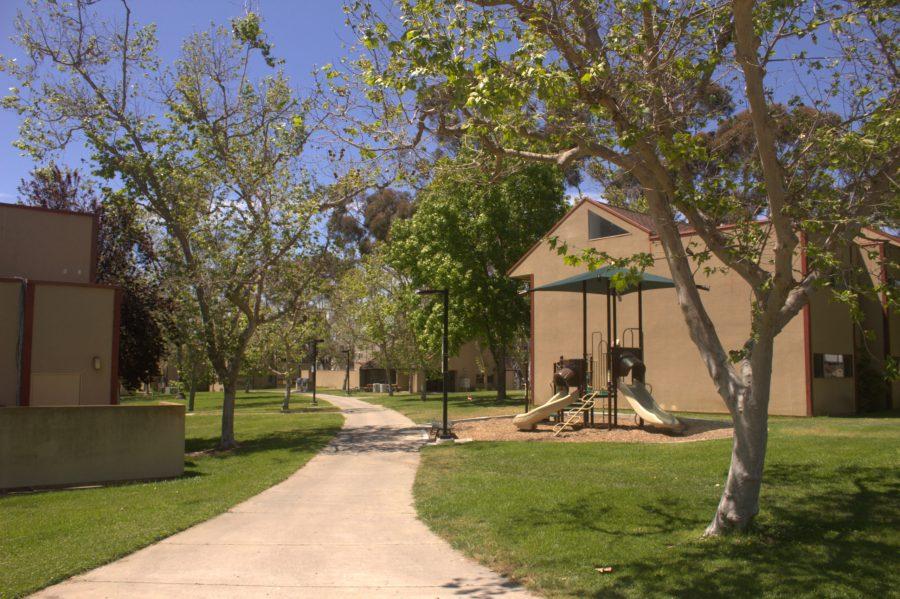In his submission, graduate student Eric Snyder argues that the recent increase in housing prices goes against the very foundation of this educational institution.
UC San Diego has been able to use affordable on-campus housing as a means of recruiting students from a variety of backgrounds, including students who are parents or caregivers. The recently announced rent increases of up to 85 percent in the Grad and Family housing will prevent many students with dependents from attending UCSD, and greatly limit the range of talent and experience from which our faculty can recruit.
When my son was born, I was starting the final year of my undergraduate degree at the University of Utah. I found myself juggling the tasks of parenting, classes, a senior project, interning, and a part-time research job. While stressful, I also found myself in a supportive environment with understanding professors, family members nearby, affordable childcare options provided by the university, and a relatively low cost of living. I knew many of these support systems would be lost when I moved to a new state to begin a Ph.D. program. Nearly all the programs I was considering had a higher cost of living than my home city, and we would no longer have extended family nearby. However, I knew I wanted to continue my education. Getting a Ph.D. was a long-held dream of mine, and I hoped to pursue this dream despite the difficulties would set an example of resilience for my child.
Ideally, a prospective Ph.D. student can select a program solely based on the reputation of the institution or the advisor they most want to work with. In my case, however, I had to also consider the quality of life for my family — would we be able to afford childcare? Would my spouse be able to find employment? Would we be able to afford an apartment? I began looking into graduate programs, and the resources universities offered for students who were parents or caregivers. At the time, UCSD offered a comparatively affordable on-campus housing option for students with dependents. This meant, at the very least, that we could survive on my graduate student stipend. This allowed us the flexibility to move to San Diego and figure out my spouse’s employment and find childcare once here.
This, however, will no longer be an option for incoming students. The two-bedroom apartment I am renting will cost future students $1,998 per month, which, despite being one of the cheapest two-bedroom options, would be 75 percent of my salary. I would not have been able to come to UCSD if this were the cost of rent when I was accepted.
My situation is not unique, nor is it the most precarious. A recent survey of students with dependents at UCSD showed that, of the 167 survey respondents, 72 percent have a total household income of less than $50,000 per year, and 43 percent earn less than $25,000 per year. For these 43 percent of households, the cheapest family housing option available is at best 91 percent of their income. This is also ignoring the 3 percent annual rent increase UCSD will implement, and the fact that administrators intend to tear down the most affordable apartments and replace them with more expensive, less family-friendly options.
These apartments also serve undergraduate students with dependents. In the survey, 64 percent of undergraduate students with dependents reported having a total household income between $0 and $25,000 per year. Undergraduate students with dependents already face additional challenges to their success, including greater financial stresses, less time, inflexible course demands, and cultural exclusion. A recent analysis by the Institute for Women’s Policy Research (IWPR) found that despite earning better grades on average than students without children, students with children experience higher rates of attrition (52 percent of student-parents leave college before graduating, compared with 29 percent of students without children). Preventing student-parent success is an issue of equity -— IWPR found that 70 percent of student parents are women, and 62 percent of these mothers are single parents. Additionally, 51 percent of student-parents are people of color, and two in five black women in college are mothers. Rather than seeking to ameliorate conditions for student-parents, UCSD has added another barrier to their success by making rent drastically less affordable.
Many students depend on federal and state assistance, like Medicaid and SNAP, to help them continue their education. However, for the over 100 international students with dependents, federal and state financial assistance programs are rarely accessible. Using these resources would risk them being labeled a “public charge” and being denied reentry into the U.S.
Students who can no longer afford on-campus housing will now be relegated to living further and further off campus — increasing their commutes, and decreasing the time they can dedicate to their research and studies — which ultimately adds more barriers to their success. Alternatively, and perhaps more likely, these students will simply choose to attend a different institution or give up on their dreams of continuing their education altogether.
Affordable on-campus housing is crucial to UCSD’s ability to recruit a diverse and competitive student body. Chancellor Pradeep Khosla and CFO Pierre Ouillet must act to correct these mistakes, and not doing so will cause lasting damage to UCSD’s reputation as a diverse and competitive institution.
Photo by Eric Snyder for the UC San Diego Guardian.














